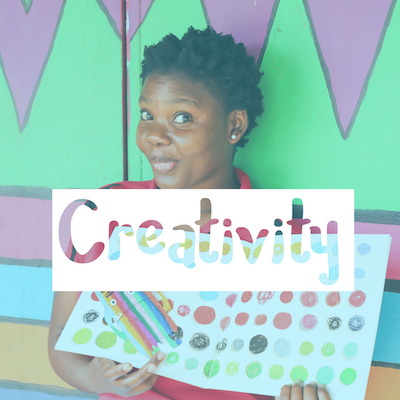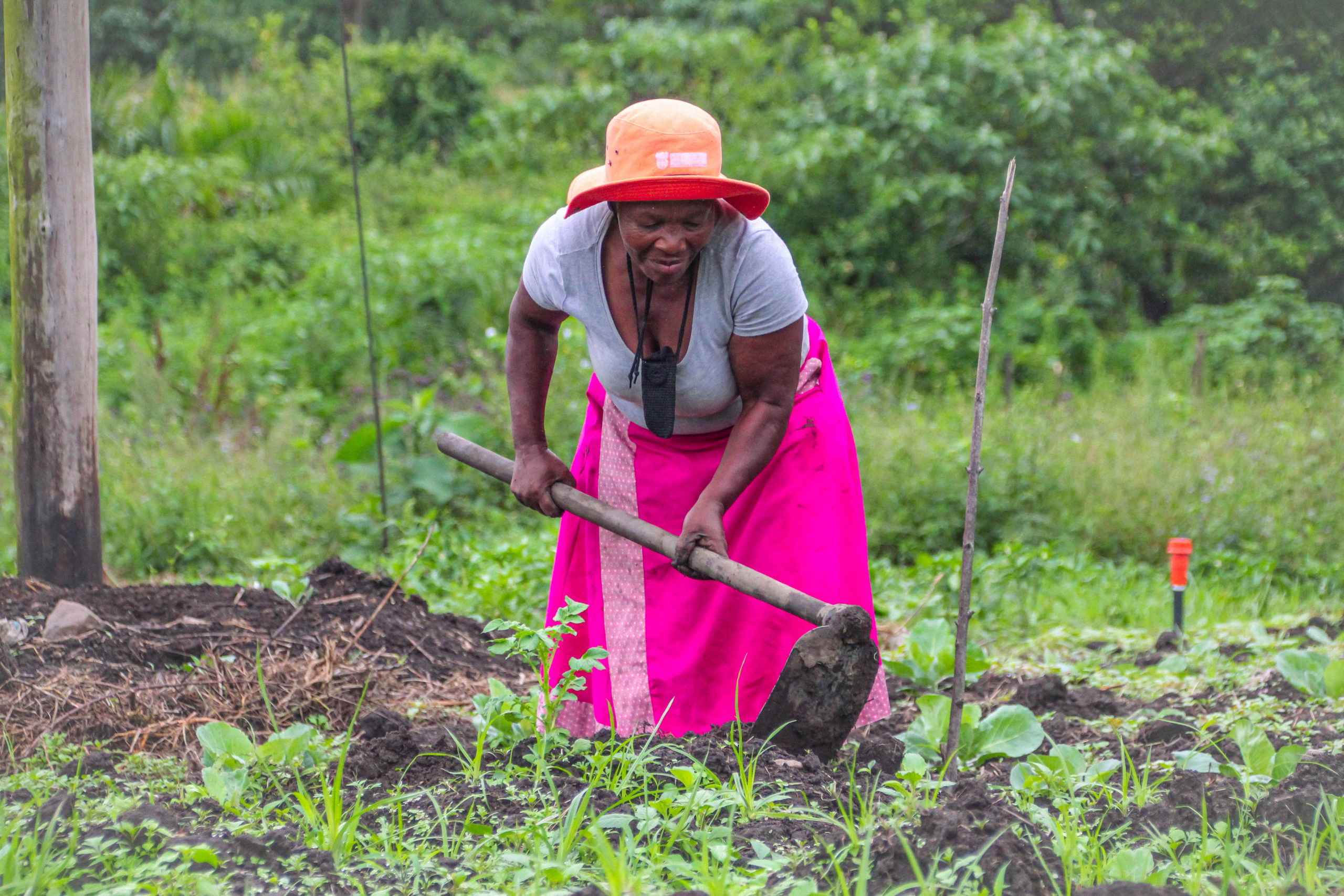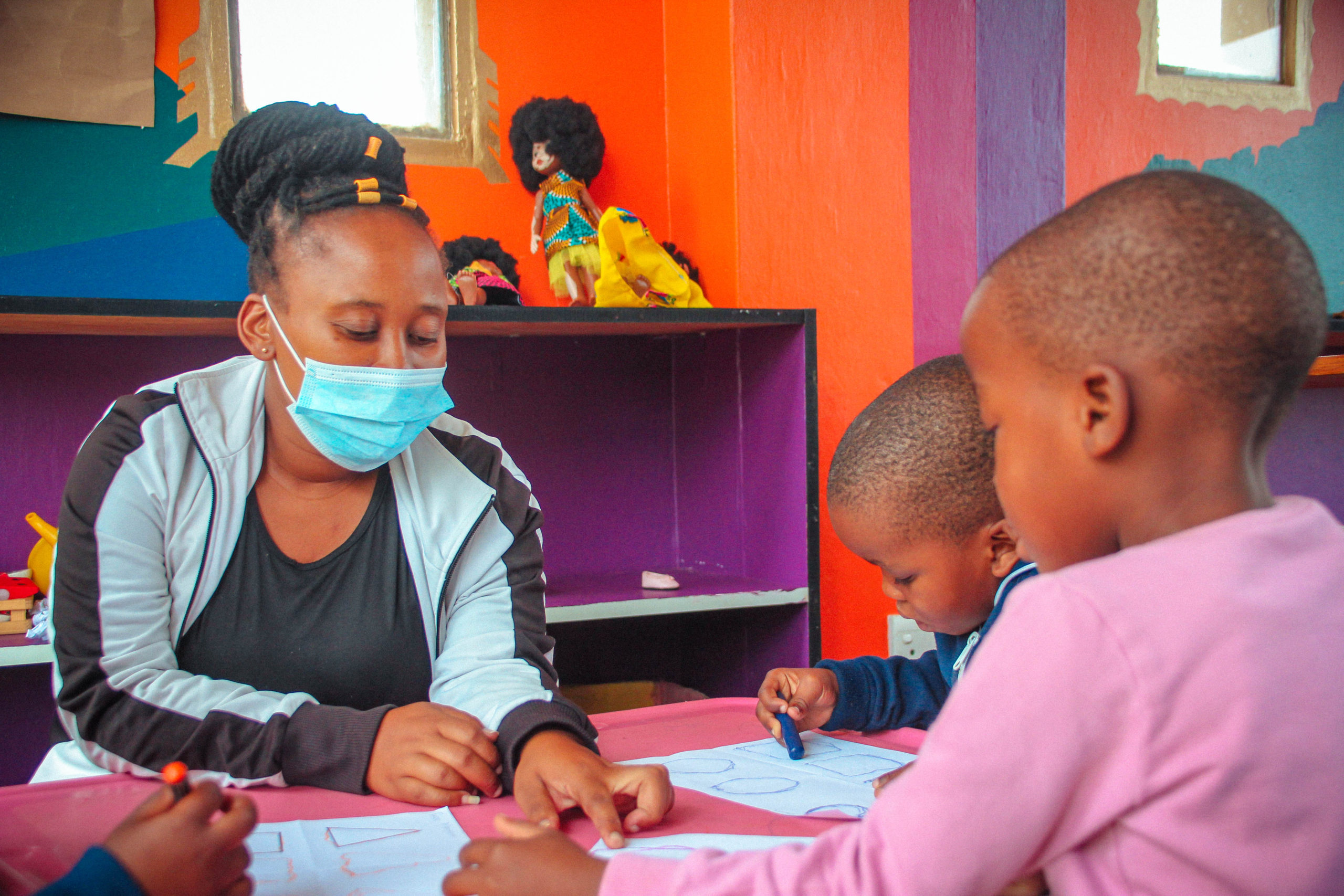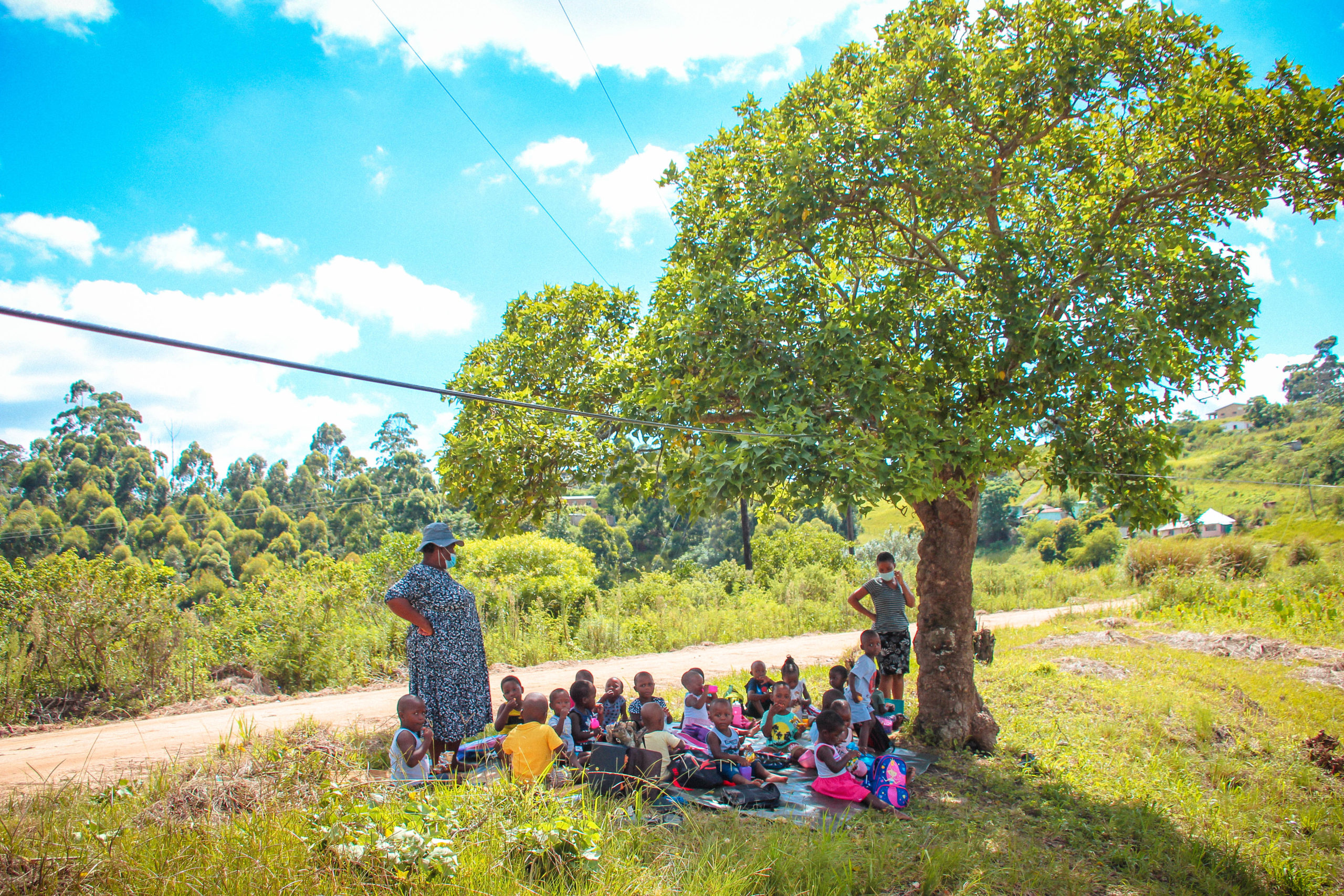When you visit Thanda, you’ll see what we mean when we say that learning is fun. Our bright and colourful buildings are a reflection of the creativity and energy that permeates our curriculum and staff. We believe that the learning process is more fluid and natural when it is fun and memorable. Although we focus on educational topics, we purposefully create an environment that differentiates itself from traditional ‘sit and learn’ classroom settings and mechanical learning because our aim is to give children opportunities to develop new skills. In this environment, creativity flourishes.
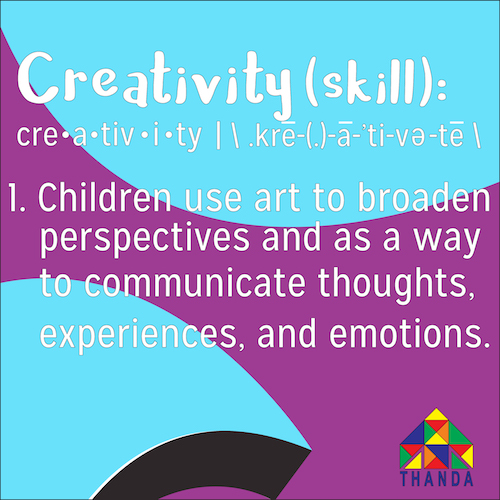
Every child is an artist. The problem is how to remain an artist once we grow up ~ Pablo Picasso
Creativity develops problem-solving and critical thinking skills. By making mistakes, children learn from and improve upon their errors, which increases grit and resilience. Art is integrated into all aspects of our curriculum and is often coupled with science projects. For example, children in our Grade 4&5 groups recently made aliens out of recycled materials and explained how they eat, breathe, sleep, etc. Our activities expose children to the absolute bizarreness of the physical universe around us, most of which is still not understood, and emphasis is placed on the notion that new discoveries entail creative thinking and big ideas.
Theme-based learning and hands-on activities
Our theme-based learning methodology allows children to delve into subjects they are fascinated by – making it easier for them to retain information, understand its relevance in the real world, and develop a genuine love of learning. Themes we explore include everything from The Gruffalo to outer space and from The Colour Monster to Thor. For example, The Giving Tree by Shel Silverstein is a major theme for our Grade 2&3 groups. After reading The Giving Tree, children create hands-on art projects centred around the theme – making 3D trees out of cardboard and leaf crowns. They also learn about photosynthesis and how trees grow by planting a bean seed and letting it grow through a maze towards the light. Children learn about tree rings and how the number of rings in a tree trunk reflect the age of that tree. Finally, they do therapeutic activities by drawing their own life as tree rings. These types of projects and hands-on activities enable children to physically engage with learning material, experience lessons for themselves rather than being ‘taught’, and develop a deeper understanding of the processes around them.
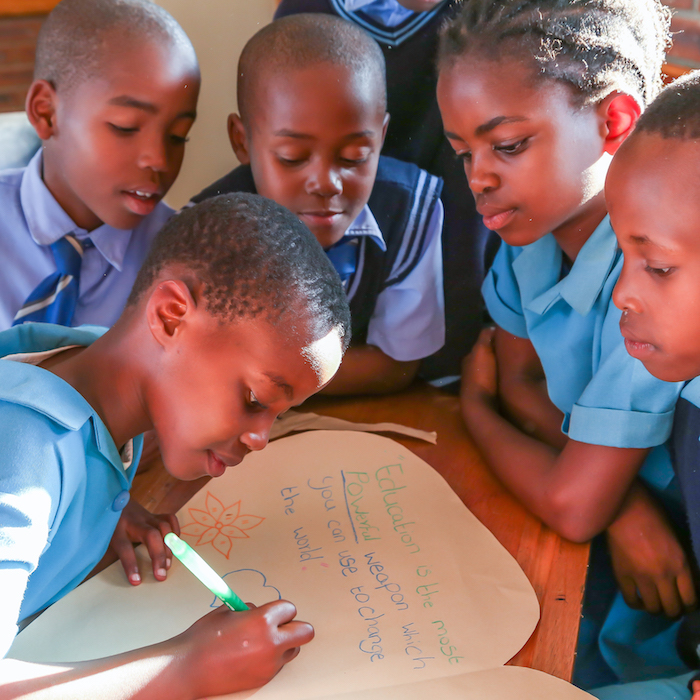
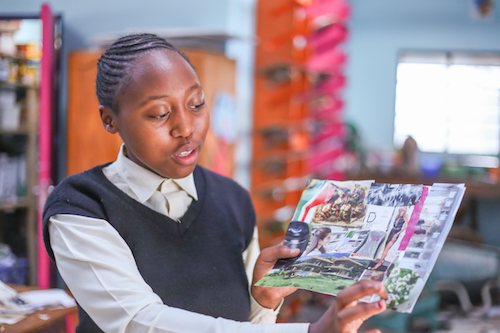
Arts Training
The second aspect of our After-school Programme, which is closely linked to the theoretical theme-based training sessions, is our Arts Training. Our Art and Education Mentor, Kristine Fowles is responsible for this weekly training session with facilitators which focuses on art and hands-on activities. Doing art is an important process through which our facilitators tend to discover that irony and grey areas exist in life – not everything is black and white, and everything is open for interpretation. Given the emphasis we place on our staff’s personal and emotional development, art as a form of therapy is key to our model. Musa, our high school After-school facilitator commented that as a result of doing art projects, children’s “self-esteem and willingness to take risks increased significantly.” And another one of our After-school Facilitators, Halala, expressed that, by doing art, she learnt she could express her feelings and then, by reflecting on her art, she became more conscious of her emotional state which she was unaware of before she started to paint.
In 2017, advertising was a major theme in our Arts training. We examined various adverts and discussed what they might be trying to communicate on both a conscious and subconscious level. We explored the concept of target markets and considered how different groups of people may be affected by different messaging through the media. Using collage, our facilitators created their own advertisements and wrote copy for different audiences. Through this theme, many of our facilitators came to the realisation that things are not always as they seem!
Importantly, the purpose of our facilitators undergoing arts training is not simply that they come out with an understanding of how to teach art activities but rather that they experience art for themselves – going through the process, creating something unique with their own hands, experiencing art’s effects on their emotions, and allowing themselves to tap into their intrinsic creativity.

Creativity in early development
We each begin life as a creative child – our minds are free to be molded like play dough. From a young age, we are either encouraged or discouraged from being curious and confident. Although arts-based activities play a critical role in the development of essential life skills, most school systems don’t prioritise art, design, music, or dance – inhibiting children’s ability to think critically, express themselves freely, and develop self-esteem.
When you look back on your own education, what stands out? Is it the memorization of multiplication tables or when you danced the preamble in a school play? When people experience unrestrained learning – the freedom to play and create – there is no telling what outcome we will see.


